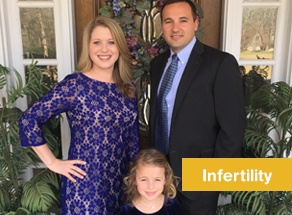Hispanic Marketing
Latino food purchases most influenced by family, emotional values
04/10/2013 01:10am | 10270 viewsWhile acculturation may have a significant impact on the diet of the millions of Hispanics in the country, data from The Multi-Cultural Latino Consumer study indicates the family experience is still what drives most of the Latino food purchases and choices.
Self Advocacy
It’s a Family Affair: Three Challenges and Long-Term Care Options Hispanics in America Need to Evaluate Sooner rather than Later
24/12/2013 01:23pm | 23110 viewsAs the fastest growing minority in the Unite States, Hispanics will likely face a long-term care challenge in their families. According to a November AARP article: “Challenges of Long Term Care, ” 18 million people over age 65 will be dealing with a disability by 2030, up 11 million in 2010. Also, the article highlights that by 2050, there will be three times as many people age 80 and older as in 2010. In addition, the Center for Medicare and Medicaid Services projects that 70% of all Americans over the age of 65 will require some type of long-term care services.
Self Advocacy
Managing Sudden Wealth
22/05/2014 02:48pm | 22192 viewsStrategies to make the most of a wealth windfall.
For every inspirational rags-to-riches tale, there’s a cautionary one: the lottery winner who squandered her wealth or the sports star who went broke a few years after retirement.
A sudden influx of wealth can quickly and dramatically change a person’s life and lifestyle. But the challenges of managing a wealth windfall are many, and the consequences of mismanaging it are severe. “Many sudden-wealth recipients think they have more than they do, so they may develop unsustainable spending habits that they think can last forever,” says Garrett Buchanan, financial consultant for Northern Trust. “But they’re usually wrong.”
If you’re the recipient of sudden wealth, consider these strategies to translate your new affluence into a sustainable lifestyle and benefit future generations.
Infertility
Broken Silence: A Latina’s Infertility Journey
28/08/2013 05:23pm | 12881 viewsMy mother, a Cuban immigrant, had three expectations of me as a child: To graduate from college, get married and become a mother. So far, I have fulfilled two of them. I became a high school teacher and a wife, but at 40-years-old have yet been able to conceive a child. It is an awful predicament to experience: the stigma of infertility plus the expectations - from my Latino family and community– to become a mother. Being the only Latina in your family without children makes you feel ashamed and isolated. Watching your friends experience the joy of motherhood leaves you feeling empty and forgotten. As a Latina isn’t it my God-given right to be a mami?
Self Advocacy
Five Reasons Why You Should Have a Financial Plan
25/11/2013 12:49pm | 9478 viewsThe 2010 U.S. census and other recent statistics show that Hispanics are the fastest growing minority in the U.S. But a recent LIMRA study, “Hispanics an untapped market for life insurance,” by Gillian Roberts, September 4, 2013, also shows that Hispanics are not saving enough for their future and are underinsured as well.








